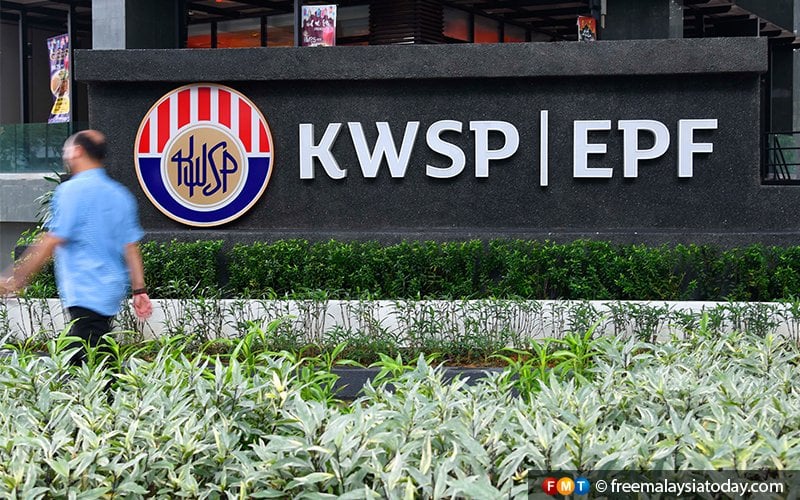
PETALING JAYA: Employees Provident Fund (EPF) contributors will be short-changed if more of its investment is diverted back home from abroad, according to several experts.
They point out that overseas investments ultimately bring in higher returns than domestic ones.
For instance, Pacific Research Center of Malaysia principal advisor Oh Ei Sun pointed out, domestic investments have remained low for some time now because of the lacklustre stock market.
His sentiment was shared by Universiti Tun Abdul Razak economics professor Barjoyai Bardai who made the observation that the local stock market has not improved over the years.
Oh and Barjoyai were commenting on a proposal by Prime Minister Anwar Ibrahim that the EPF raises the proportion of its domestic direct investments from 64% now to 70%.
Oh said the government is “pulling out a thousand and one tricks” including mandating EPF to pump more capital into the stock market to shore it up.
He told FMT Business such moves are typical of developing countries and immature economies where the executive “typically trumps other branches of government overwhelmingly”.
In principle, Oh said, a well-diversified portfolio is better as it spreads the risks. “However, nationalism typically over-rides sensible considerations,” he said.
“This is no more or less protectionist than most other nations that have a substantive local corporate sector,” he added.
Barjoyai said that while a 6% change seemed reasonable, a pension fund should not be used to prop up the stock market.
“This is unnatural and it can result in a disaster,” he told FMT Business.
He said that while institutions such as the EPF have their own fund managers to build a balanced portfolio that takes into account its risk profile and returns potential, it should not go all out to support local stocks.
Lower returns from domestic investments
Malaysia University of Science and Technology economics professor Geoffrey Williams pointed out that returns on the domestic market have always been lower than from investments in overseas markets.
“To maintain good returns, the EPF must invest overseas. Otherwise, the dividends to members will be lower than it is now,” he told FMT Business.
He said increasing the domestic proportion of its investment was not the best way for EPF to improve the investment environment in Malaysia.
“It is better to find out why Malaysian companies are under-performing and then change the environment and management to get better performance, not just for government-linked companies (GLCs) but for private companies as well,” he said.
He said the GLC transformation programme of 2004 had been successful and it should be revisited, but there should also be new initiatives such as responsible privatisation to create more agile and competitive companies.
“Protecting local companies with more EPF involvement could just prop up poorly performing companies and slow down their transformation and restructuring,” Williams said, adding that it is better to reform the entire ecosystem to create a more competitive environment.
Despite this, he said, it is still important to increase domestic investment because direct investment is the backbone of the Malaysian economy given that it also supports the supply-side which creates jobs, wealth and growth.
In this area, he said, Malaysia cannot rely on foreign direct investment because competition from other countries is very tough.
“Domestic investment must compensate for lower foreign direct investment (FDI) as it keeps investment in the hands of Malaysians and is strategically important to ensure the country has a strong business sector that is less reliant on foreign investors and would be more resilient in the face of global instability,” he said.
A superfund?
Williams said that it would be much better to build a new Malaysian superfund as a sovereign wealth fund to replace existing ones. Such a fund could swell to RM700 billion quickly.
“Instead of relying on EPF, more attention should be paid to other under-performing funds including Permodalan Nasional Bhd, Khazanah Nasional Bhd, Kumpulan Wang Persaraan, Lembaga Tabung Angkatan Tentera and Tabung Haji,” he said.
“These are giving low returns and are also relatively small funds compared to EPF,” he said, adding that they need to be improved, and one option is to consolidate these funds into a new Malaysian superfund, and change its investment approach. - FMT



No comments:
Post a Comment
Note: Only a member of this blog may post a comment.